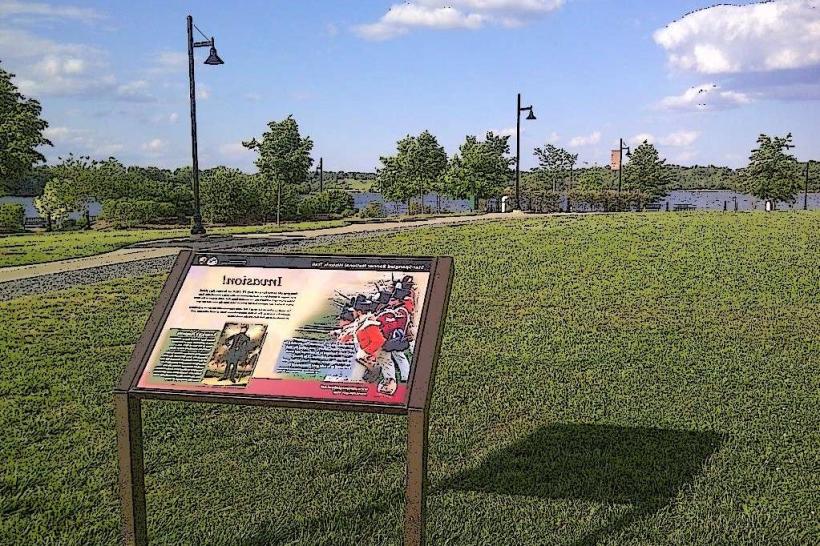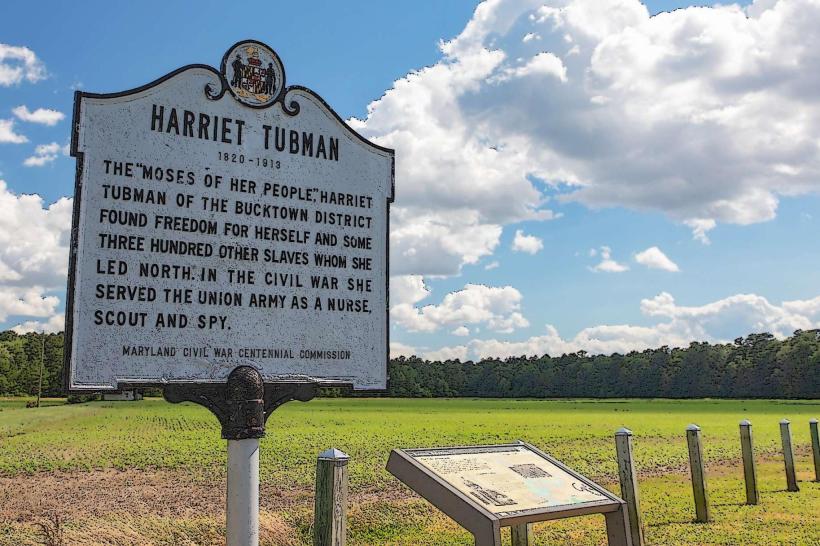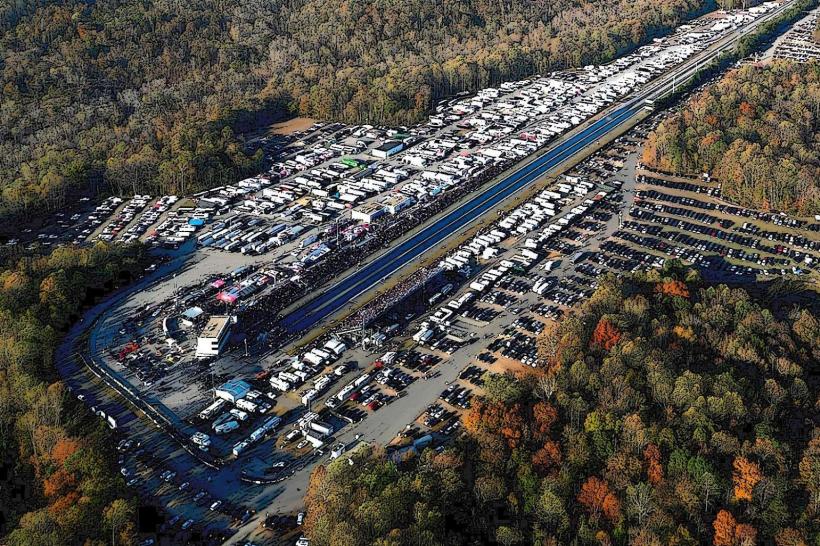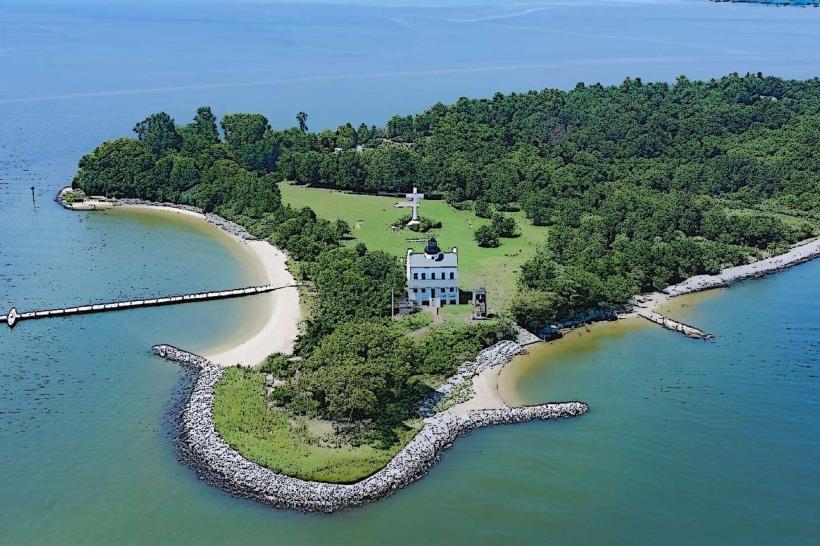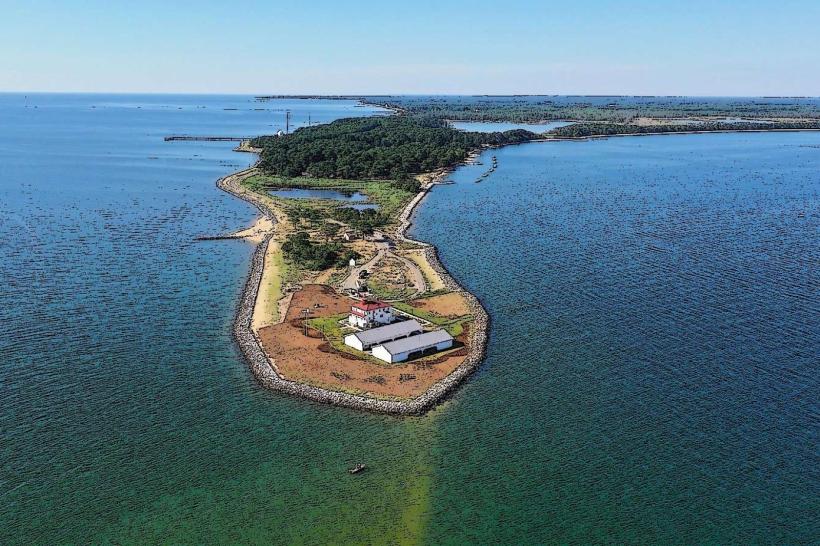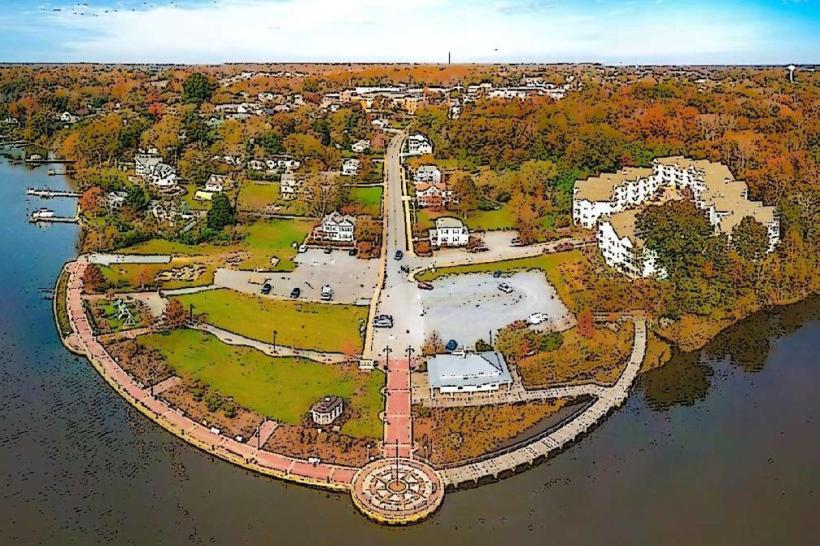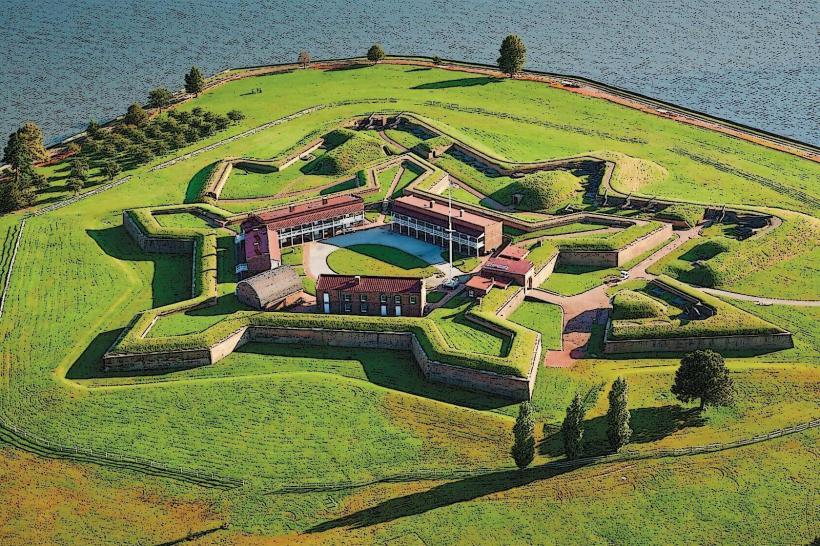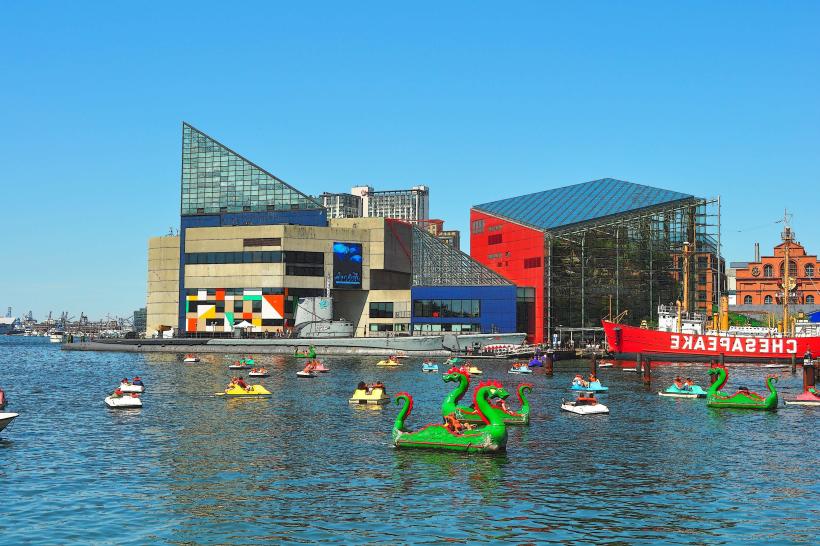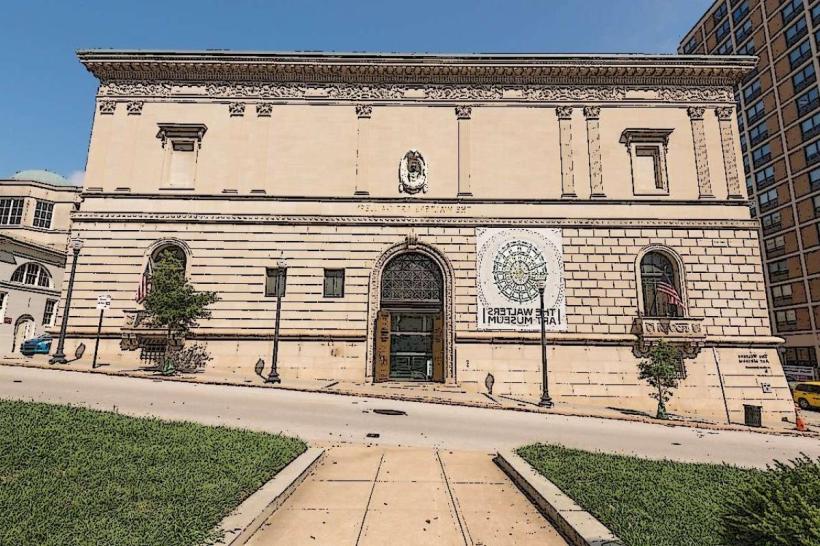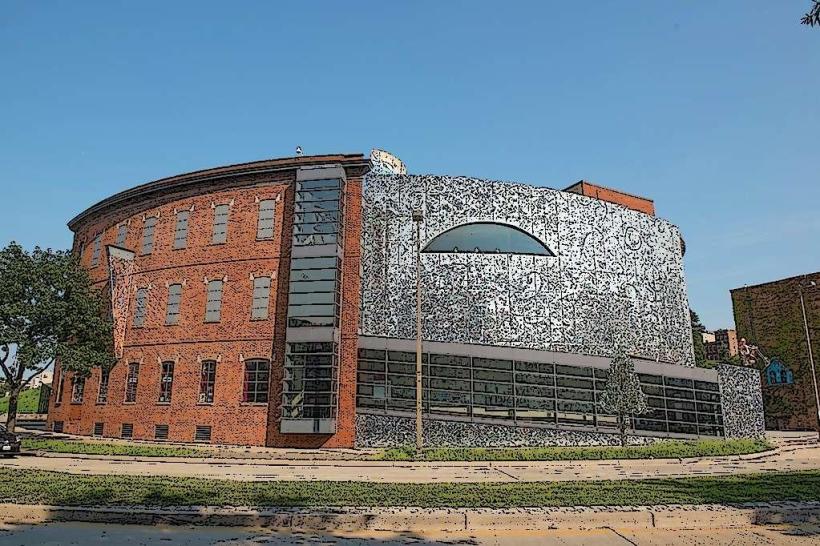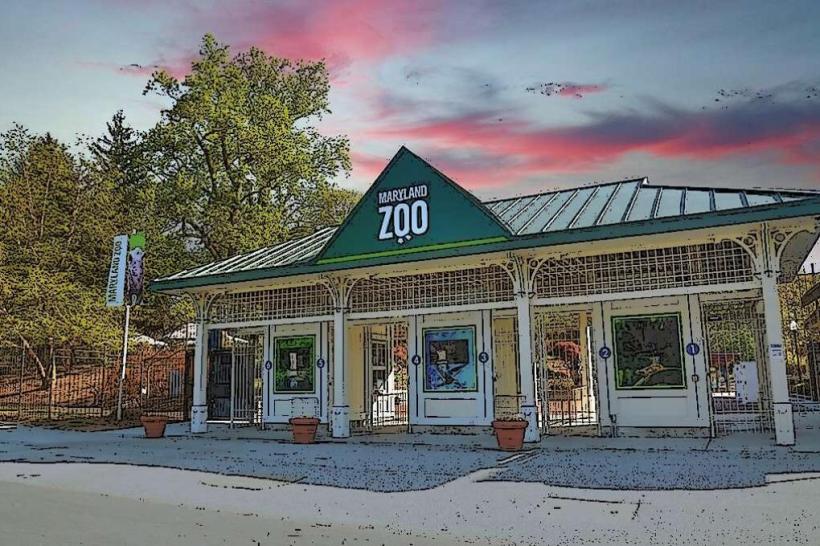Information
Landmark: Calvert Cliffs State ParkCity: Baltimore
Country: USA Maryland
Continent: North America
Calvert Cliffs State Park, Baltimore, USA Maryland, North America
Calvert Cliffs State Park, located in Lusby, Maryland, is a remarkable natural area spanning approximately 1,079 acres along a 24-mile stretch of Chesapeake Bay shoreline. It is renowned for its striking geological formations, diverse ecosystems, and rich fossil deposits, making it a significant destination for both nature lovers and paleontology enthusiasts.
Geological and Paleontological Importance
The park is most famous for the Calvert Cliffs themselves-steep, sandy cliffs formed during the Miocene epoch, roughly 10 to 20 million years ago. During this period, much of what is now Southern Maryland was submerged under a warm, shallow sea. As this ancient sea receded over millions of years, it deposited layers of sediment that eventually hardened into rock formations. Continuous erosion by wind and water exposes these layers, revealing a treasure trove of fossils embedded within the cliffs.
The fossil beds at Calvert Cliffs are among the richest on the East Coast of the United States, with over 600 species identified. Fossils found here include shark teeth (particularly from extinct species such as the Megalodon), whale and dolphin bones, fish remains, rays, turtles, and seabirds. These fossils provide an invaluable window into the marine life that thrived during the Miocene epoch, offering scientists and visitors alike the chance to study prehistoric ecosystems and evolutionary history.
Fossil Hunting Experience
One of the park’s main attractions is its beach, accessible via the well-maintained 1.8-mile Red Trail, which leads visitors directly to the fossil-rich shoreline. The beach is composed of sand and shell fragments washed down from the cliffs, making it an ideal spot to find fossils such as shark teeth, oyster shells, and the characteristic Chesapecten clam fossils.
Visitors interested in fossil hunting are encouraged to bring tools such as sieves, small shovels, and buckets to sift through the sand and gravel. It is important to note that collecting fossils directly from the cliffs or the base beneath them is strictly prohibited due to safety concerns: the cliffs are unstable and subject to frequent landslides. Visitors must remain cautious and stay on designated paths and the beach area for their safety.
Trails and Natural Landscape
Calvert Cliffs State Park boasts approximately 13 miles of hiking trails that traverse a variety of ecosystems, including dense hardwood forests, wetlands, and coastal habitats. These trails range from moderate to easy difficulty, winding through the park’s designated Wildlands Area, which is protected to preserve its unique natural environment.
The trail system allows hikers to experience the park’s rich biodiversity, including sightings of native plants, birds, and mammals. Birdwatchers can spot species such as wood thrushes, barred owls, and migratory songbirds. The wetlands serve as habitat for beavers, muskrats, herons, and egrets. The sandy beaches provide critical nesting grounds for endangered insects such as the Puritan tiger beetle and the northeastern beach tiger beetle, highlighting the park’s ecological importance.
Recreational Amenities and Visitor Facilities
The park is equipped with visitor-friendly amenities to enhance the outdoor experience. These include picnic areas with tables and grills, restrooms, and a playground made from recycled tires that is accessible to children of varying abilities. A small pond near the picnic area offers fishing opportunities for licensed anglers, providing a quiet spot for freshwater fishing.
While swimming in the Chesapeake Bay is not permitted due to strong currents and safety concerns, visitors can enjoy wading along the shoreline and relaxing on the sandy beach. The park’s natural beauty and scenic vistas offer excellent opportunities for photography, nature study, and outdoor recreation.
Safety and Accessibility
Safety is a priority at Calvert Cliffs State Park. The cliffs are subject to natural erosion, making areas beneath them prone to sudden rockfalls and landslides. For this reason, visitors are advised to avoid walking directly under the cliffs and to remain on marked trails and designated beach areas.
The park is accessible year-round from sunrise to sunset, with a modest day-use fee required for vehicles entering the area. Facilities such as parking lots, trailheads, and picnic shelters are well maintained to accommodate visitors.
Visitor Recommendations
To avoid crowds, especially during weekends and holidays, visiting on weekdays is recommended.
Wear sturdy footwear suitable for hiking on sandy, uneven terrain.
Bring adequate water, sun protection, and insect repellent, particularly during warmer months.
Follow park guidelines strictly to preserve its natural and historical resources.
Utilize available trail maps for navigation and a richer experience.
Calvert Cliffs State Park stands out as a unique blend of geological wonder, natural habitat preservation, and recreational opportunity. Its fossil-rich cliffs not only attract scientific interest but also provide the public with an engaging outdoor experience that connects visitors to the deep natural history of the Chesapeake Bay region.


